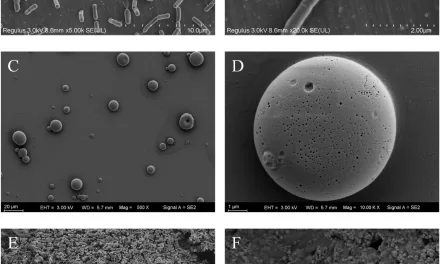Researchers at the Institute of Psychiatry, Psychology & Neuroscience (IoPPN) at King’s College London have made a groundbreaking discovery in the field of aging with the development of artificial intelligence-based “aging clocks.” These clocks use data from blood markers to predict an individual’s health and lifespan, offering new insights into biological aging and the potential for early interventions to improve health outcomes.
The comprehensive study, published in Science Advances, evaluated the performance of 17 machine learning algorithms trained on blood metabolite data from over 225,000 participants of the UK Biobank. The participants, aged 40 to 69 years at the time of recruitment, provided extensive data on the markers in their blood, which were analyzed to assess how well different AI models could predict aging and lifespan.
A key concept in the study is “MileAge,” or metabolomic age, which estimates an individual’s internal biological age based on metabolites in their blood. Metabolites are small molecules produced during metabolism, such as those created when food is broken down into energy. The difference between a person’s chronological age and their MileAge, referred to as the MileAge delta, can reveal whether their biological aging is accelerating or slowing.
The research team found that individuals with accelerated biological aging—those whose metabolite-predicted age was older than their chronological age—were more likely to experience frailty, chronic illness, and higher mortality risk. These individuals also had shorter telomeres, a marker of cellular aging linked to age-related diseases like atherosclerosis. On the other hand, decelerated aging, where metabolite-predicted age was younger than chronological age, showed only a weak connection to good health.
According to Dr. Julian Mutz, lead author of the study, “Metabolomic aging clocks have the potential to provide insights into who might be at greater risk of developing health problems later in life. Unlike chronological age, which cannot be changed, our biological age is potentially modifiable. These clocks could help shape lifestyle choices and inform preventative strategies by health services.”
The research team’s findings also revealed that non-linear machine learning algorithms performed the best at capturing aging signals, making them ideal for developing more accurate biological aging clocks. One of the algorithms, Cubist rule-based regression, produced a metabolomic clock most strongly linked to health markers, demonstrating its potential to predict health outcomes based on blood data.
Professor Cathryn Lewis, senior author of the study, emphasized the role of big data analytics in advancing the development of biological aging clocks. “This study is an important milestone in establishing the potential of biological aging clocks and their ability to inform health choices.”
The breakthrough could revolutionize how we assess and track health over time. By identifying signs of accelerated biological aging, individuals and healthcare providers could intervene earlier to prevent diseases before they take hold, potentially improving quality of life and extending healthy lifespan.
For more details, the full study is available in Science Advances (DOI: 10.1126/sciadv.adp3743).
Source: Science Advances
DOI: 10.1126/sciadv.adp3743












